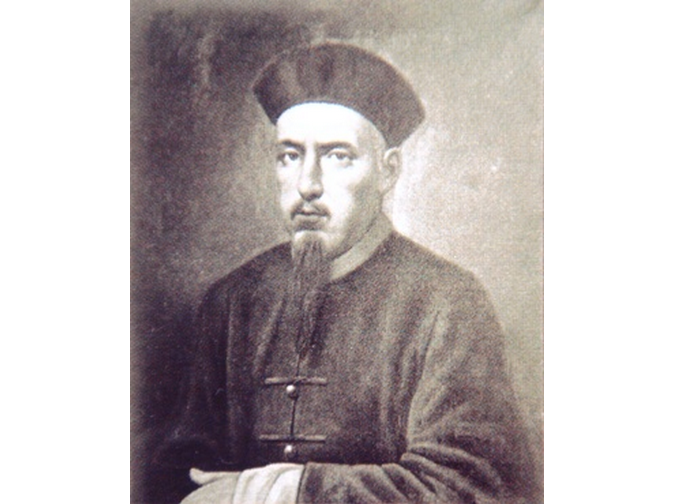Saint Auguste Chapdelaine
Martyr in China, he belonged to the Society of Foreign Missions of Paris

Among the 120 who were martyred on Chinese soil and canonised by John Paul II on October 1st, 2000, there is also the French priest Auguste Chapdelaine (1814-1856), who belonged to the Society of Foreign Missions of Paris.
Born in La Rochelle, a village in Normandy, in his early youth he worked in agriculture together with his family. Hearing the call of God, he entered the seminary and at 29 years old received priestly ordination. He began to carry out his ministry in the village of Boucey, where he stayed until 1851, before moving to the seminary of the Society of Foreign Missions of Paris, having perceived a missionary vocation. A year later he embarked for China, a country which had been in turmoil since the end of 1850 because of the so-called Taiping Rebellion (first concerning the Nanjing area and then spreading to the South).
After staying in several Chinese cities, in 1854 Father Chapdelaine finally managed to reach the province of Guangxi, celebrating his first mass in China on December 8th of that year (the date of the solemn dogmatic proclamation of the Immaculate Conception). He was arrested a few days later, and spent more than two weeks in prison. As a result of the threats he received, he decided to temporarily leave Guangxi, to return later in December 1855. A man, irritated by a woman’s conversion to Jesus Christ, decided to report him to the local Mandarin, accusing him of causing unrest and preaching a faith that was prohibited in that part of China.
Arrested together with other Christians, he was badly beaten, subjected to torture and locked in a small iron cage, with a hole on the upper side to insert the condemned man's neck. In practice he died by strangulation and only after his death was his head cut off. It was February 29th, 1856. Father Chapdelaine was 42 years old. He was beatified by Leo XIII in 1900 and, as previously mentioned, declared saint by John Paul II a hundred years later.
